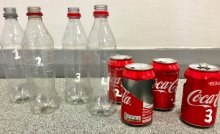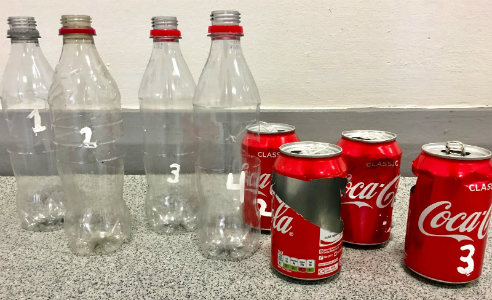
Anna Kayani (Lower Sixth)
At the end of last term, our Lower Sixth IB students have been working collaboratively to complete their Group 4 Science project.
Centred on the theme of plastic, we were able to construct our own experiments, drawing on skills acquired across the three Sciences. Within my group, we decided to conduct an experiment that would allow us to determine whether aluminium coke cans or plastic coke bottles are better suited to their purpose within the Coca Cola consumer industry.
By testing the physical properties of aluminium and plastic, namely durability, density, the effect of pH, and heat resistance, we predicted that plastic would emerge as the superior material (solely on this basis). However, the excitement of having complete independence and free reign on deciding the nature of our experiment made us perhaps a little too ambitious. Our failure to take the limitations of our environment into account soon became apparent when we came to the realisation that it probably was not a good idea to try and reach the 600°C heat needed to melt aluminium in a school laboratory! Working alongside my peers, and seeing the huge diversity within the different investigations that were taking place was truly inspiring.
The combination of disciplines from across the Sciences allowed for a wider range of perspectives and insights that was not only useful, but truly fascinating to learn from one another. In a wider sense, this experience led me to really appreciate the plethora of opportunities available to me; the fact that we could do anything and, not even for a moment, consider any boundaries is an ardent reminder of the innovative and nurturing ethos of our school.





















